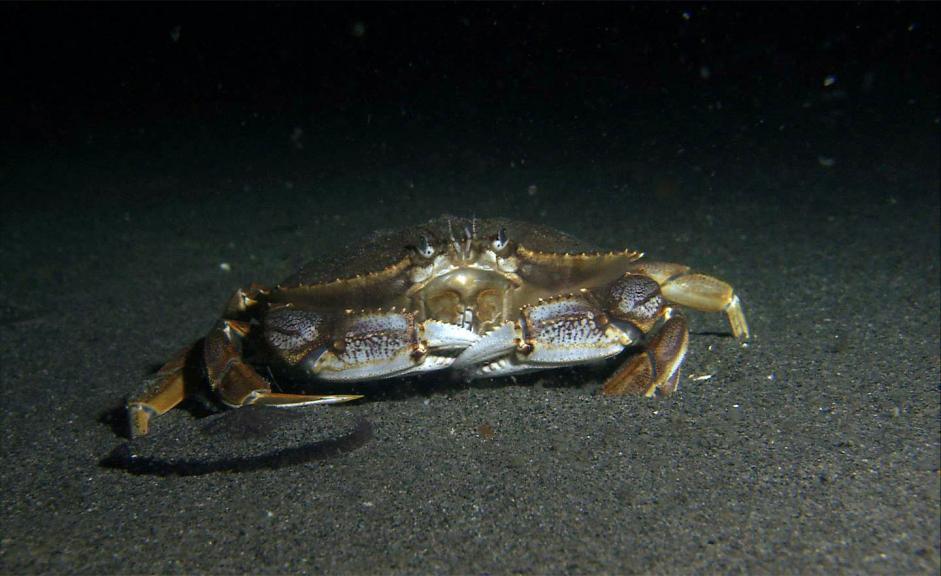(CN) — Recreational and commercial crab fishing in California will be restricted as large groups of humpback whales continue to forage along the coastline, the California Department of Fish and Wildlife announced Friday.
The temporary restriction, which goes into effect when the crab fishing season opens Nov. 4, applies to recreational traps set by citizens in an area between the Sonoma-Mendocino county line and Lopez Point in Monterey County. Individuals will still be permitted to use hoop nets, snares, and other methods to catch the crustaceans. Commercial fishing of crabs, however, which was set to begin Nov. 15, has been delayed entirely between the Sonoma-Mendocino county line and the U.S.-Mexico border.
Crab traps are cages that fishers attach to buoys with lines and ropes that whales can become tangled in. They have ensnared at least three, and possibly as many as five, humpback whales off the California coastline this year, according to Ryan Bartling, an environmental scientist with the California Department of Fish and Wildlife.
According to a risk assessment published by the department on Monday, 118 humpback whales were spotted in an area between the Sonoma/Mendocino county line and Pigeon Point in San Mateo County in a seven day period this month. The temporary ban is aimed at ensuring the humpback whales can safely forage.
Between 2015 and 2016, 20 humpback whales got entangled in Dungeness crab traps. Modifying fishing seasons, educating fishers, and updated commercial fishery practices have reduced the rate at which whales become entangled in traps, Bartling said.
“State officials made the right decision by delaying the Dungeness crab season opening since there are still lots of humpback whales in the water,” Ben Grundy, the oceans campaigner at the Center for Biological Diversity, said in a statement.
He added that the state could avoid entanglement risks to whales while still allowing crab fishing to continue by permitting commercial fishers to use pop-up gear and other new technologies.
Pop-up gear are crab traps that don’t require lines or rope to run from a buoy to a cage on the ocean floor. Some pop-up gear technology involves sending acoustic signals down to the ocean floor, which trigger the cage to float up to the surface.
“There’s a big opportunity for California to lead the country in pop-up gear adoption,” Grundy said.
The length of the ban depends on the results of the department’s next risk assessment, which will take place in mid-November. The state's commercial fisheries could be permitted to resume operations again as soon as Dec. 1.
“This is a West Coast issue,” Bartling said. “Oregon is grappling with the same thing. It’s about entanglement, they’ve got the same problem.”
California just has more issues with entanglement of whales because the state has a longer coastline, he added.
Subscribe to Closing Arguments
Sign up for new weekly newsletter Closing Arguments to get the latest about ongoing trials, major litigation and hot cases and rulings in courthouses around the U.S. and the world.









